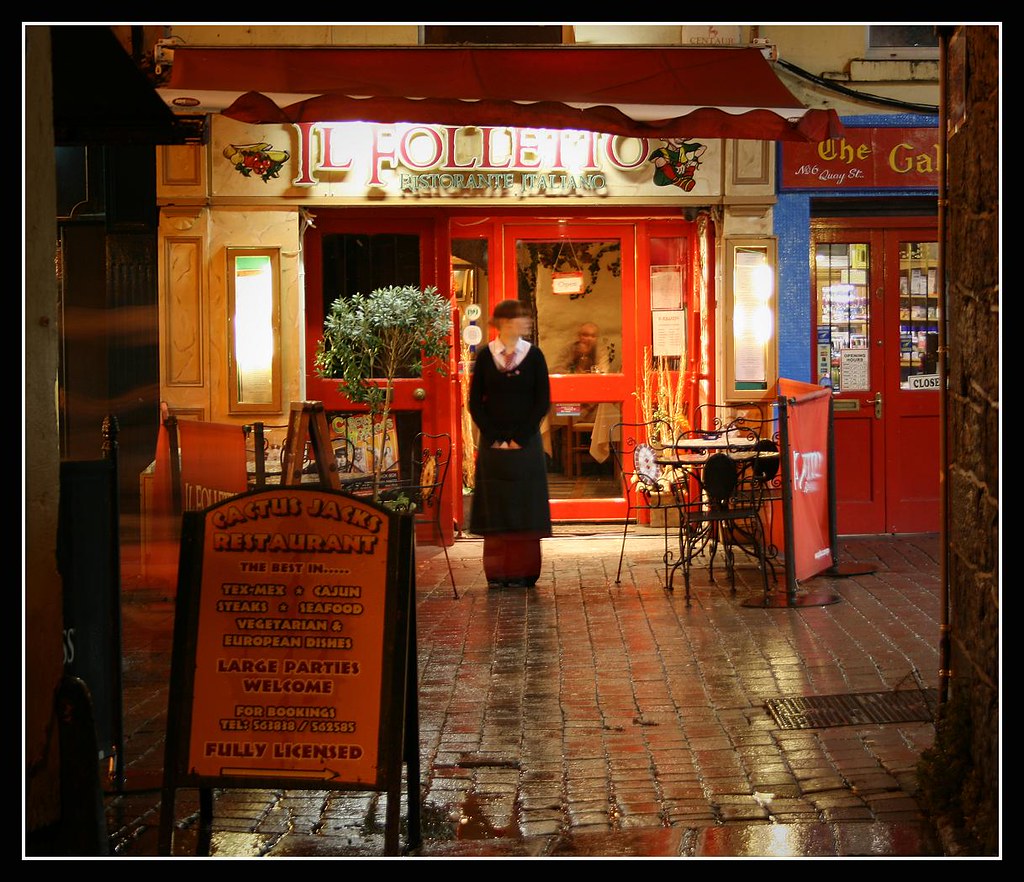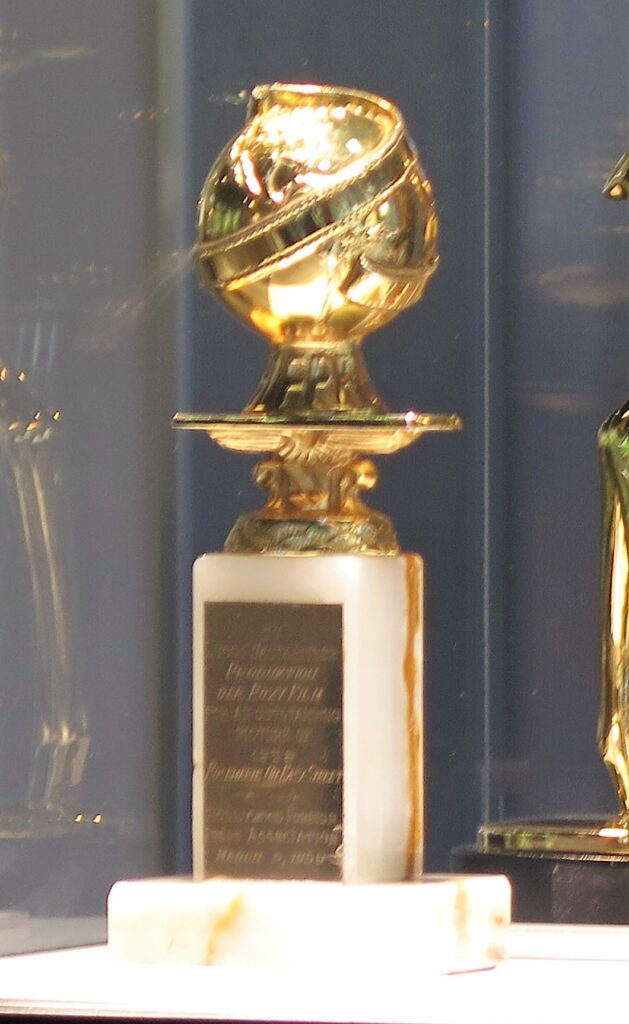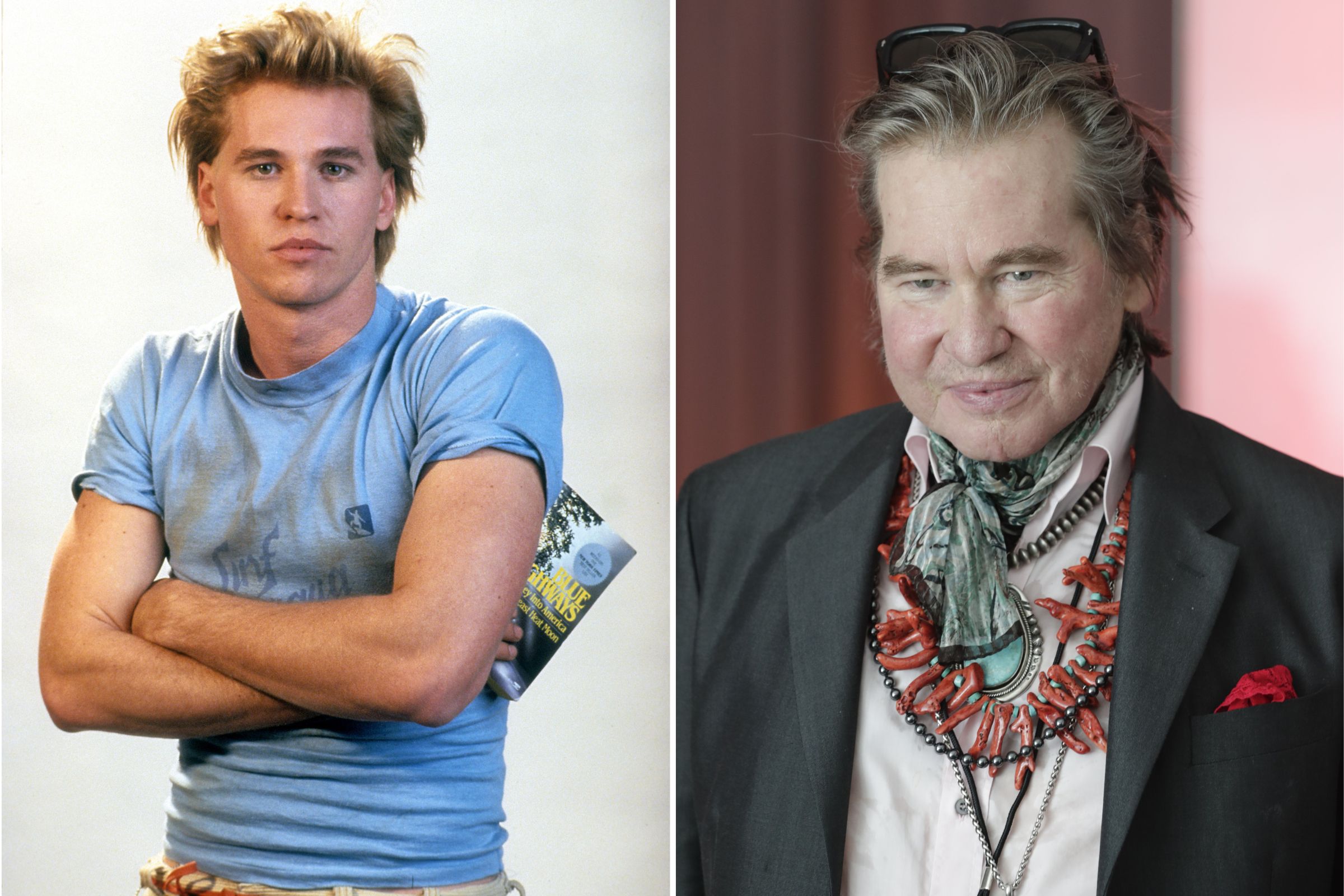Polly Holliday, the adaptable actress best known for her unforgettable portrayal of the brash but amiable waitress Flo on the long-running sitcom “Alice,” and a revered figure on the stage, died on Tuesday, September 9, at her home in Manhattan. She was 88 years old. Her passing was confirmed by Dennis Aspland, her theatrical agent and a close friend, marking the end of a prolific career that spanned decades in television, film, and theater.
Holliday’s distinctive talent brought to life a character that etched itself into the fabric of American pop culture, making her a household name. As Flo, with her signature beehive hairdo and gum-chewing sass, she delivered a catchphrase – “Kiss my grits!” – that resonated across the nation, becoming an instant retort embedded in everyday language. Yet, her contributions extended far beyond the confines of a diner counter.
Her career was a testament to her versatility, demonstrating a profound dedication to her craft across various mediums. While her television roles garnered widespread recognition, Holliday simultaneously cultivated a significant and lauded presence on Broadway, earning a Tony Award nomination among other accolades. This article delves into the remarkable life and enduring legacy of Polly Holliday, exploring the pivotal roles, the critical acclaim, and the early influences that shaped her extraordinary journey.

1. **Polly Holliday, Stage and Screen Veteran, Dies at 88**The news of Polly Holliday’s passing on Tuesday, September 9, 2025, at her Manhattan residence, concluded a life rich with artistic achievement. At 88, she was the last surviving principal cast member of the beloved CBS sitcom “Alice,” a show that captivated audiences from 1976 to 1985. Her agent, Dennis Aspland, relayed the somber announcement, noting her profound impact on both the small and large screens, as well as the illustrious stages of Broadway.
Holliday’s death follows that of her “Alice” co-star Linda Lavin, who played the title character and passed away less than a year prior. This sequence of events brings to a close an era for fans of the iconic series. Her departure leaves a void in the hearts of those who admired her distinctive acting style and the vibrant characters she so memorably embodied.
Her career was a mosaic of memorable performances, each reflecting her unique blend of comedic timing and dramatic depth. From her Southern roots in Alabama to the bright lights of New York, Holliday’s journey was one of consistent artistic evolution. She carved out a special place in the entertainment industry, earning respect and affection from colleagues and audiences alike.

2. **The Birth of Flo Castleberry: “Alice” and a Cultural Phenomenon**Polly Holliday’s breakthrough role arrived in 1976 when she stepped into the shoes of Florence Jean “Flo” Castleberry in the sitcom “Alice.” This character, a bold and sarcastic waitress at Mel’s Diner in Phoenix, quickly became a fan favorite. Flo’s distinctive personality, characterized by her gum-chewing habit and carefully teased, hair-sprayed beehive wig, instantly made her recognizable.
Flo was unapologetically flirtatious and “shamelessly man-crazy,” having been married three times, and frequently addressed people as “sugar.” She was also vain enough to avoid wearing eyeglasses, a detail that further cemented her distinctive persona. Flo once confidently asserted her appeal to her boss, Mel: “I’m attractive, I’m a good talker, I’m a good dancer, and the list goes on and on.” This self-assuredness endeared her to viewers, who admired her wit and resilience.
The series “Alice” was loosely based on Martin Scorsese’s 1974 film “Alice Doesn’t Live Here Anymore.” It centered on the lives of three waitresses – Alice (Linda Lavin), Vera Louise Gorman (Beth Howland), and Flo – working at a roadside diner owned by the gruff but ultimately kind Mel Sharples (Vic Tayback). Holliday’s portrayal of Flo created a dynamic and engaging ensemble, contributing significantly to the show’s widespread appeal and longevity.

3. **”Kiss My Grits!”: A Catchphrase’s Enduring Legacy**Perhaps no element of Polly Holliday’s career is as widely recognized as the iconic catchphrase, “Kiss my grits!” This seemingly simple retort, delivered by her character Flo, transcended the boundaries of television, becoming a part of everyday American language. Flo would pause dramatically, address the offender in dulcet tones, and then deadpan the unforgettable phrase, solidifying its place in pop culture history.
Despite the phrase’s undeniable association with her Southern-born character, Holliday herself was quick to distance it from authentic regionalisms. She openly stated in interviews that “Kiss my grits!” was “pure Hollywood” and not a genuine saying from her native Alabama. This clarification offered insight into the artificiality inherent in character development versus genuine cultural expression.
However, while the catchphrase itself was a Hollywood invention, Holliday deeply identified with the essence of Flo’s character. She described Flo as a “Southern woman you see in a lot of places” – someone “not well educated, but very sharp, with a sense of humor and a resolve not to let life get her down.” This personal connection to Flo’s core spirit allowed Holliday to imbue the character with a authenticity that resonated deeply with audiences, regardless of the phrase’s manufactured origin.
Interestingly, the now-famous line was not the original plan. It began as “Kiss mah honeydew” but failed to elicit the desired audience reaction. The switch to “Kiss my grits!” proved to be a stroke of comedic genius, becoming an instant classic and a testament to the power of a perfectly crafted line delivered by a master performer. Its longevity demonstrates the profound impact of Holliday’s performance.

4. **From Supporting Star to Lead: The “Flo” Spin-Off**Polly Holliday’s immense popularity as Flo Castleberry on “Alice” did not go unnoticed by network executives. Her breakout stardom led to a rare opportunity: her own spin-off series, aptly titled “Flo,” which premiered on CBS in 1980. This move underscored the significant impact her character had made on television audiences, propelling a supporting role into a leading one.
Holliday departed “Alice” during its 1979-1980 season to headline her new show. The premise of “Flo” followed her character as she left Mel’s Diner and returned to her hometown of Cowtown, Texas, to buy and run a rundown bar. This gave Flo a new setting and a new set of challenges, allowing Holliday to explore her character in a fresh environment, away from her previous co-stars.
The spin-off provided Holliday with an expanded platform to showcase her comedic talents and explore the further dimensions of Flo’s spirited personality. She aimed to demonstrate that the character could carry a narrative independently. The series, however, proved to be short-lived, running for only one year, or 29 episodes, during the 1980-81 season before its cancellation.
Despite its brief run, “Flo” further cemented Holliday’s status as a formidable comedic presence and earned her additional critical recognition. It was a significant step in her career, demonstrating the network’s confidence in her ability to captivate audiences as a leading lady. Her time on “Flo” further illustrated her commitment to developing her beloved character, even as she sought new artistic challenges.

5. **Critical Acclaim: Golden Globes and Emmy Nominations**Polly Holliday’s exceptional talent was recognized with numerous accolades throughout her career, particularly for her work on television. Her portrayal of Flo Castleberry in “Alice” garnered her four Golden Globe nominations, a testament to her consistent excellence in a supporting role. She notably won one of these prestigious awards in 1980, marking a significant moment of industry acknowledgment for her performance.
Beyond the Golden Globes, Holliday also received substantial recognition from the Television Academy. She earned a total of four Emmy Award nominations for her work in sitcoms. Three of these nominations were for Outstanding Supporting Actress in a Comedy Series for her role in “Alice,” reflecting the sustained critical appreciation for her performance throughout the show’s run.
Her transition to a leading role in the spin-off series “Flo” also brought an Emmy nomination, this time for Outstanding Lead Actress in a Comedy Series in 1980. This nomination highlighted her versatility and ability to command a series as its central figure. These nominations and wins underscored her position as a respected and celebrated actress within the television landscape.
Such consistent critical acclaim validated the audience’s affection for her characters. The awards served as a formal acknowledgment of her skill in comedic timing, character development, and ability to leave a lasting impression on viewers. They cemented her legacy as a television icon, whose performances were both popular and artistically respected.

6. **Foundations in Theater: From Alabama to Broadway’s Early Days**Before she became a household name on television, Polly Dean Holliday cultivated a deep and abiding passion for the stage, beginning her artistic journey far from the bright lights of Hollywood. Born on July 2, 1937, in Jasper, Alabama, and raised in the smaller town of Childersburg, her parents were Ernest Sullivan Holliday, a truck driver, and Velma (Cain) Holliday. Her early life was rooted in the South, where she was even voted most talented in her high school senior class.
Holliday initially pursued a path in music, majoring in piano at Alabama College, State College for Women (now the University of Montevallo), from which she graduated in 1959. Following her graduation, she worked for a period as a grade school music teacher. However, the allure of acting soon called to her, drawing her towards a different artistic expression. She later stated, “I started acting long before I knew what I was doing.”
Her formal entry into theater began at age 19, when she joined the cast of a summer outdoor theater in North Carolina, the Unto These Hills Outdoor Drama Center, working as a choir singer, square dancer, and understudying a lead role. This early experience provided foundational training. She then spent the better part of a decade, starting in 1962, honing her craft at the Asolo Repertory Theater in Sarasota, performing in works by esteemed playwrights such as Shakespeare, Molière, and Chekhov.
Holliday’s theatrical journey led her to New York, where she made her Broadway debut in 1974 in Murray Schisgal’s comedy “All Over Town.” Directed by Hollywood star Dustin Hoffman, she played a “highly seducible Southern matron,” a role that foreshadowed her future success. This early collaboration with Hoffman proved pivotal, establishing connections that would benefit her career further, solidifying her path from regional theater to the prestigious stages of Broadway.

7. **Continued Broadway Success and a Tony Nomination**Polly Holliday’s commitment to the stage, which she often described as her first love, blossomed into a distinguished Broadway career that paralleled her television stardom. Her performances earned her critical praise and industry recognition, showcasing a dramatic depth beyond her comedic roles. She believed an actor was truly fortunate to spend considerable time on stage, where one could “practice every night,” a testament to her dedication to refining her craft continuously.
One of the pinnacles of her theatrical work arrived in 1990 when she received a Tony Award nomination for Best Featured Actress. This prestigious acknowledgment was for her compelling performance as Big Mama in a revival of Tennessee Williams’s “Cat on a Hot Tin Roof.” The New York Times review by Frank Rich lauded her portrayal as a “poignant Big Mama” and “a rending figure within the thunderstorm of the denouement,” highlighting her ability to embody complex and emotionally resonant characters.
Her Broadway presence was extensive, including co-starring with Jean Stapleton and Abe Vigoda in “Arsenic and Old Lace” in 1986. She also left a significant mark in a 1994 revival of William Inge’s “Picnic,” where she played the heroine’s overly protective mother. David Richards of The Times commended her for offering “a revelatory spin” on the character, who bitterly remembered once being “the town beauty but wasted every advantage that nature gave her.” Further stage credits included “The Time of the Cuckoo” in 2000 at Lincoln Center, as well as off-Broadway appearances in James Duff’s “A Quarrel of Sparrows,” where she radiated “a refreshingly touching air of willed, cheerful imperturbability,” and several comedies by John Guare, where she navigated roles from an artist’s embarrassing mom to the “desperately cheerful wife” of Ulysses S. Grant.
Read more about: Sigourney Weaver, 74 and Glowing: A Red Carpet Reignition and Her Enduring Legacy at the Venice Film Festival!

8. **Memorable Film Roles Beyond Television**While Polly Holliday achieved widespread fame through her television work, her filmography reveals a versatile actress capable of embodying a diverse range of characters across various genres. Her big-screen career often saw her in memorable supporting roles, each performance adding a distinct texture to the narratives, from political thrillers to beloved family comedies.
One of her earliest and most notable film appearances was in the acclaimed 1976 political thriller “All the President’s Men.” Here, she played a protective secretary to a Florida investigator, a brief but impactful role that solidified her presence in a serious dramatic context. This early collaboration with Dustin Hoffman, who had previously directed her on Broadway, underscored her growing stature in the industry and her ability to work across different acting registers.
Holliday demonstrated her range by tackling significantly darker comedic roles, most notably as the wealthy and meanspirited Mrs. Deagle in the 1984 horror-comedy “Gremlins.” The New York Times critic Vincent Canby memorably described her character as “Kingston Falls’s own wicked witch,” whose ultimate demise via a malfunctioning stair-lift chair became an iconic moment in the film. Her comedic talents were further showcased in “Mrs. Doubtfire” (1993), where she played Gloria Chaney, the annoying next-door neighbor, a stark contrast to her other roles.
Later in her career, she delighted audiences as Marva Kulp, the fearless owner and director of Camp Walden in “The Parent Trap” (1998), capable of handling even the toughest discipline problems, including those presented by two Lindsay Lohans. Her film credits also included more dramatic turns, such as her role as Momma Love in John Grisham’s 1995 legal thriller series “The Client” and her final appearance as Diana Plame, the concerned mother of CIA operative Valerie Plame, in the 2010 drama “Fair Game,” demonstrating her enduring capacity for nuanced character work.
Read more about: Beyond the Shadow: 14 Celebrity Kids Who Absolutely Crushed Their Parents’ Fame Game

9. **Diverse Television Appearances and Guest Roles**Beyond her iconic role as Flo and her subsequent spin-off series, Polly Holliday maintained a remarkably active presence across the television landscape, appearing in numerous series and television movies that highlighted her adaptability. She consistently embraced roles that allowed her to explore different facets of her acting prowess, often departing significantly from the sassy persona that made her famous.
She made memorable guest appearances on several beloved sitcoms, including “The Golden Girls” in 1986, where she played the blind sister to Betty White’s character, offering a performance imbued with both humor and empathy. Her recurring role on “Home Improvement” saw her as Tim Allen’s sassy mother-in-law, a character she portrayed across five different seasons between 1993 and 1999, further cementing her status as a versatile comedic actress capable of sustained performance in popular shows.
Holliday also took on a significant role in CBS’s “Private Benjamin” as Major Amanda Lee Allen, stepping in when star Eileen Brennan suffered injuries in a car crash. She reflected on this period, stating, “I hated to get a job at the expense of someone’s misfortune, but a lot of other people’s jobs were at stake. I didn’t want to see the show fold,” illustrating her professionalism and concern for her colleagues. Her earlier television career included a screen debut in the 1974 TV movie “Wedding Band,” an adaptation of an Alice Childress drama she had performed in on stage, and a role in six episodes of the soap opera “Search for Tomorrow” as a “prison inmate leader.”
Her extensive television filmography also encompassed diverse roles in made-for-television movies such as “Bernice Bobs Her Hair” (1976), “You Can’t Take It With You” (1979), and “The Gift of Love: A Christmas Story” (1983). She also appeared in episodic dramas like Steven Spielberg’s “Amazing Stories” (1986), “The Equalizer” (1988), and “Homicide: Life on the Streets” (1996), showcasing her consistent demand and broad appeal. Notably, she provided crucial guidance to Dustin Hoffman in preparing for his role as Dorothy Michaels in the 1982 film “Tootsie,” helping him perfect the character’s silky Southern accent and fiery temper, demonstrating her influence even behind the scenes.
Read more about: From Audition Rejects to A-Listers: The Shocking Stories of Stars SNL Missed Out On!
10. **Polly Holliday’s Personal Reflections on Her Craft and Character**Throughout her extensive career, Polly Holliday offered insights into her approach to acting and her deep connection to the characters she brought to life. While she became indelibly linked to Flo Castleberry, she consistently emphasized that her identification with the character ran deeper than the manufactured catchphrases, reflecting a profound understanding of the human spirit she aimed to portray.
Holliday often spoke of how playing Flo had a transformative effect on her own perception of her roots. In 1980, she shared, “After I discovered theater, I became very abrupt with my people back home. But Flo helped me fall in love with my roots. She’s so honest. I became honest too.” This sentiment underscored how her art informed her personal growth, allowing her to embrace and appreciate the Southern heritage she once tried to mask for stage roles.
She frequently described Flo as a “Southern woman you see in a lot of places” – someone “not well educated, but very sharp, with a sense of humor and a resolve not to let life get her down.” This detailed description, provided in an interview in 2003, revealed the authentic human qualities she sought to imbue in Flo, moving beyond simple caricature. Holliday’s nuanced perspective highlighted her commitment to portraying characters with dignity and an inherent inner strength.
Her dedication to her craft was absolute, leading her to remark in the 1980s that “my work is my life,” a statement that resonated with her decision never to marry or have children. This singular focus allowed her to devote herself entirely to her artistic pursuits. Despite initial hesitations about typecasting and concerns like, “if the show wasn’t successful, where would I be with a head of bleached hair?” she embraced the physical transformation for Flo, even requiring “a whole superstructure” to build out the character, illustrating her full immersion into every role she undertook.
Read more about: Polly Holliday, Iconic ‘Alice’ Sitcom Star and Tony-Nominated Stage Actress, Dies at 88: A Retrospective on Her Enduring Legacy
11. **Heartfelt Tributes from Colleagues and the Industry**Upon the news of Polly Holliday’s passing, a wave of heartfelt tributes poured in from her former colleagues and prominent figures within the entertainment industry, reflecting the profound impact she had on those who worked with her. These remembrances painted a picture of an actress who was not only talented but also genuinely kind and professional.
Nancy Meyers, the esteemed director of “The Parent Trap,” shared an emotional post on Instagram, writing, “So sad to hear of Polly Holliday’s passing. She was so kind and game and just wonderful in every moment in The Parent Trap. I just saw her the other night in All The President’s Men. She was fantastic in that film. My condolences to her loved ones and friends.” Meyers’ words highlighted Holliday’s consistent grace and exceptional acting across her career.
Lindsay Lohan, who starred alongside Holliday in “The Parent Trap,” commented on Meyers’ post, expressing her admiration: “Oh my goodness. What a beautiful woman inside and out. God bless and RIP Polly.” Lohan further added, “She was wonderful and of course also [in] The Parent Trap,” underscoring the lasting impression Holliday left on her younger co-star and emphasizing the warmth of her personality both on and off screen.
Maggie Wheeler, who played Marva Kulp Jr. to Holliday’s Marva Kulp Sr. in “The Parent Trap,” recalled their enjoyable time together on set. In an Instagram post, Wheeler reminisced, “We had so much fun together on The Parent Trap from hanging out together in her trailer to being covered to chocolate syrup and driving on golf carts while the chocolate hardened! Oh how we laughed!” This vivid memory spoke to Holliday’s playful spirit and ability to foster a joyful working environment. Elaine Hendrix, another co-star from “The Parent Trap,” added her tribute on Threads, stating, “RIP Polly Holiday. She slayed in so many projects. Of course my heart is with Marva Sn forever,” acknowledging her powerful performances and lasting legacy.
Read more about: Johnny Crawford’s Enduring Legacy: A Deep Dive into ‘The Rifleman’ Star’s Illustrious Career, Family Bonds, and Personal Journey – Did He Have Children?
12. **Enduring Legacy and Final Farewell**Polly Holliday’s passing at 88 years old marked the end of an era, as she was the last surviving principal cast member of the iconic CBS sitcom “Alice.” Her life’s work, spanning decades, left an indelible mark on American entertainment, showcasing a rare blend of comedic timing, dramatic gravitas, and an unwavering dedication to her craft that transcended any single role.
Her remarkable career was officially recognized in 2000 when she was inducted into the Alabama Stage and Screen Hall of Fame, a fitting tribute to her profound influence and contributions from her Southern roots to the national stage. Holliday’s journey from a grade school music teacher to a celebrated actress on Broadway and Hollywood demonstrated an extraordinary artistic evolution, embodying versatility across Shakespearean classics, modern dramas, and beloved sitcoms.
Holliday possessed a unique ability to create characters that resonated deeply with audiences, imbuing each with a distinct personality and an underlying authenticity. Whether it was the sharp-witted Flo, the menacing Mrs. Deagle, or a poignant Big Mama, her performances consistently offered layers of humor, vulnerability, and strength, making her characters unforgettable. She understood the power of a well-crafted line and the subtle nuances of human emotion, elevating her roles beyond mere scripts.
Read more about: Davey Johnson: A Baseball Maverick’s Enduring Legacy — From World Series Champion Player to Iconic Manager Who Sparked Mets and Nats
Though her character Flo’s catchphrase, “Kiss my grits!”, became an enduring part of American popular culture, Polly Holliday’s legacy extends far beyond a single line or a single show. She was an actress of immense talent and integrity, whose extensive body of work on stage, screen, and television profoundly enriched the lives of millions. Her dedication, versatility, and genuine spirit will continue to be remembered and celebrated, serving as an inspiration for future generations of performers.







